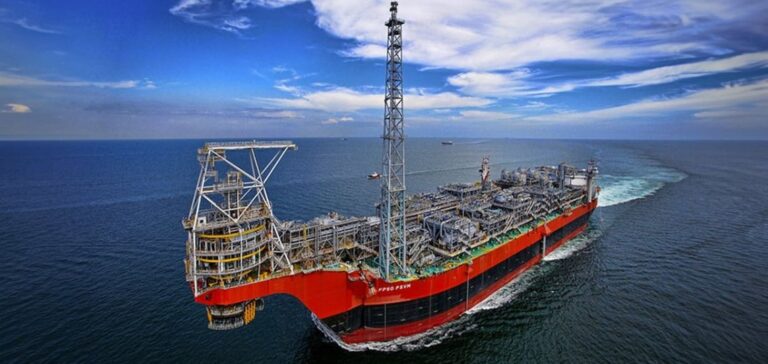Senegal officially enters the circle of oil-exporting countries with its first cargoes destined for European refineries. The Sangomar project, led by Woodside Energy, has made it possible to extract this oil, which is now on its way to Rotterdam and Trieste. These exports represent a historic milestone for the country’s economy, marking the start of oil production.
The start of exports
On July 1, the Greek tanker Maran Poseidon docked at the Sangomar oil project to load Senegal’s first cargo of medium-acid crude. According to data from S&P Global Commodities at Sea, the vessel is due to leave Senegal before July 20, bound for the Dutch hub of Rotterdam. A second shipment is also planned, with a destination in Trieste, Italy.
Shell International Trading, listed as charterer of the Maran Poseidon, is the leading buyer of this Senegalese crude. This first shipment is due to be refined at Shell’s Pernis refinery in Rotterdam, one of the largest in Europe with a capacity of 404,000 barrels per day.
Economic and strategic impact
The arrival of Senegalese oil in Europe comes at a time when the OPEC+ alliance of producers is attempting to stabilize oil prices through production cuts. With an initial capacity of 100,000 barrels per day, Sangomar oil offers a new non-OPEC+ source for the European market.
Senegal hopes that this new sector will help stem the exodus of young people seeking economic opportunities in Europe. According to Thierno Ly, Director of the national oil company Petrosen, Sangomar’s first oil marks a new era for the country’s economy and social development.
Future prospects
In addition to the Sangomar project, Senegal is also looking forward to the start-up of the Greater Tortue Ahmeyim LNG project, developed by BP and Kosmos Energy. Located on the border with Mauritania, this project could further strengthen Senegal’s position on the global energy scene.
The rise of oil and gas production in Senegal could radically transform its economy, offering new opportunities for growth and innovation. However, these resources need to be managed carefully to avoid the pitfalls of the resource curse.
Senegal, with the support of its international partners, seems well placed to navigate this new era successfully, while maximizing the economic and social benefits for its population.





















